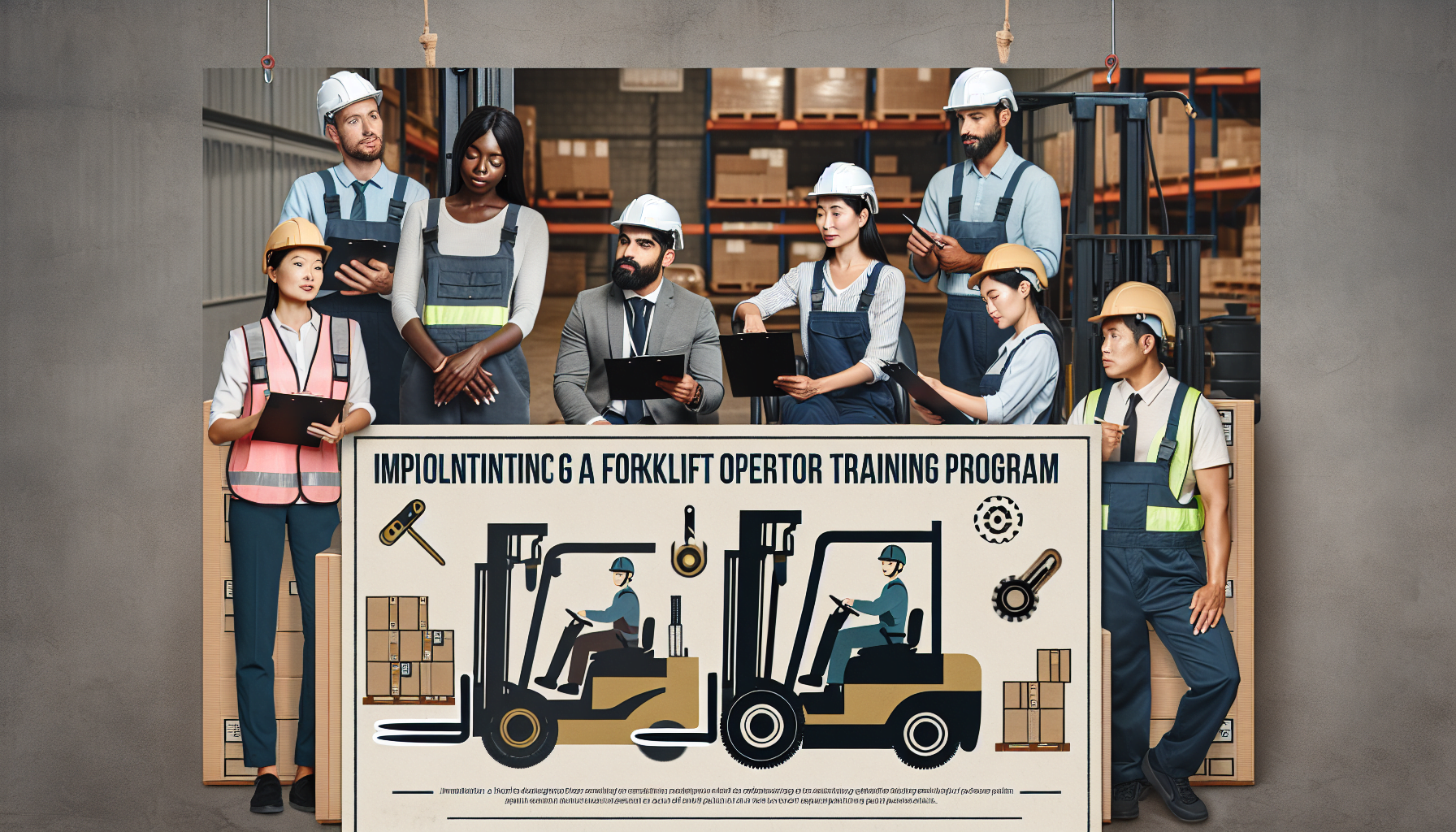In today’s fast-paced warehouse and logistics industry, maintaining a productive and safe working environment is crucial. One of the key factors in achieving this is ensuring that your forklift operators are well-trained and equipped with the necessary skills to operate the equipment safely and efficiently.
The Importance of a Forklift Operator Training Program
A comprehensive forklift operator training program is essential for any company that relies on forklifts to move and handle materials. Here are a few reasons why implementing such a program is important:
- Enhanced Safety: Forklift accidents can result in severe injuries or even fatalities. By providing proper training, you can significantly reduce the risks associated with operating forklifts, ensuring the safety of your operators and those working in and around the warehouse.
- Protection of Goods: Forklift accidents can not only cause harm to individuals but can also damage inventory and other equipment. With a well-trained operator, you can minimize the chances of accidents and prevent costly damages.
- Compliance and Legal Requirements: Regulatory bodies such as OSHA (Occupational Safety and Health Administration) require employers to provide training to forklift operators. Failure to comply with these regulations can result in penalties or legal consequences. By implementing a training program, you ensure compliance with the necessary standards.
- Increased Productivity: A trained forklift operator can efficiently handle the equipment, optimizing material movement and reducing downtime. This leads to enhanced productivity, improved operational efficiency, and ultimately, a positive impact on your bottom line.
Key Elements of a Forklift Operator Training Program
Now that we understand the importance of a forklift operator training program, let’s dive into the key elements that make up an effective program:
- Theoretical Training: The program should start with theoretical training that covers the fundamentals of forklift operations, including the different types of forklifts, their components and controls, load capacity, stability factors, and safety procedures. This knowledge forms the foundation for safe and efficient operation.
- Practical Training: Practical hands-on training is crucial for operators to develop the necessary skills and confidence in operating a forklift. This should include real-time practice in maneuvering the forklift, stacking and unstacking loads, picking up and placing materials, and navigating through different surfaces and environments.
- Safe Operation Techniques: Emphasize the importance of safe operating practices, such as keeping a safe distance from pedestrians and other equipment, maintaining proper visibility, using appropriate lifting and stacking techniques, and understanding load limits. Reinforcing these techniques through regular safety meetings and refresher courses can help prevent accidents.
- Training Documentation: Maintain comprehensive records of the training conducted, including attendance sheets, training materials, assessments, and certifications. These documents serve as evidence of compliance and can be invaluable in case of audits or legal inquiries.
- Ongoing Refresher Training: Continuous learning and improvement are essential for forklift operators. Regular refresher training should be conducted to reinforce safe practices, address any gaps in knowledge or skills, and keep operators updated with any changes in regulations or equipment.
Forklift fleet management solutions can also play a significant role in supporting your training program by providing advanced features such as operator performance monitoring, real-time alerts for potential safety risks, and automated reporting.
Best Practices for Implementing a Forklift Operator Training Program
To ensure the successful implementation of a forklift operator training program, consider the following best practices:
- Customization: Tailor the training program to your specific equipment, site conditions, and industry requirements. Generic training material may not adequately address the unique challenges and hazards your operators may encounter.
- Involvement of Experienced Personnel: Engage experienced forklift operators or trainers in designing and delivering the training program. Their invaluable insights can help create a practical and effective curriculum.
- Periodic Evaluations: Assess the effectiveness of the training program through regular evaluations, feedback sessions, and operator performance monitoring. Identify areas for improvement and incorporate feedback into future training sessions.
- Clear Communication: Clearly communicate the goals, expectations, and benefits of the training program to all stakeholders, including managers, operators, and support staff. Effective communication ensures everyone understands the importance of the program and actively participates.
- Continuous Improvement: Review and update the training program on an ongoing basis to incorporate any new regulations, equipment upgrades, or best practices. Staying current with industry standards ensures your operators are equipped with the latest knowledge and skills.
By following these guidelines and investing in a comprehensive forklift operator training program, you can create a safer work environment, reduce accidents and damages, comply with regulatory requirements, and maximize the productivity of your warehouse operations.

